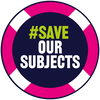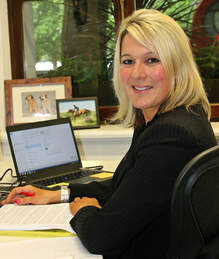06.02.23
The Edge Foundation is delighted to be partnering with the Independent Society of Musicians (ISM) on the newly launched #SaveOurSubjects campaign. This is an exciting opportunity to raise awareness of the need to protect arts and technology subjects in secondary schools – a very pressing issue. As Edge’s Chief Executive, I am proud to be supporting this cause.
The past 20 years has seen a worrying trend in the secondary school curriculum. Academic subjects like English, mathematics and the sciences have become increasingly prevalent, while technical and creative subjects have declined. This trend has been compounded by the introduction of accountability measures like the English Baccalaureate (Ebacc). Following its 2010 introduction, the Ebacc focused secondary school curriculums on 5 key subjects: English, maths, science, a humanities subject and a language. The introduction of Progress 8 in 2016 also contributed to a marked decline in the uptake of technical and creative subjects.
While I believe these accountability measures were introduced with good intention, young people are now leaving school without the skills they need. The UK’s creative industries are a major contributor to the economy. In 2019, DCMS estimated that creative industries contributed £115.9 billion to the economy, or 5.9% of economic output. However, between 2010 and 2022, there was a fall of 40% in GCSE arts entries, while Design and Technology GCSE had 71% fewer entries.
Sadly, this trend has been accompanied by a dramatic rise in the number of teachers leaving the profession. An Oxford University Press survey for the Times Education Commission highlighted that less than half of secondary school teachers found the curriculum ‘broad and balanced’ with 82% stating that the accountability system is overly concerned with academic achievement. However, in fee paying schools the arts and cultural education have conversely seen increased investment, provision and value ascribed them.
Unsurprisingly, this two-tier system of opportunity has increased inequality in terms of access to a broad educational experience. Under-represented students are the worst effected. Black, Asian and ethnically diverse students already face significant obstacles to studying arts subjects throughout their educational careers. But this doesn’t just impact students of colour – it is also affecting disadvantaged pupils from all backgrounds, including those in disadvantaged areas where the government has promised to ‘level up’. Naturally, narrow curricular pathways are only intensifying the problem.
The past 20 years has seen a worrying trend in the secondary school curriculum. Academic subjects like English, mathematics and the sciences have become increasingly prevalent, while technical and creative subjects have declined. This trend has been compounded by the introduction of accountability measures like the English Baccalaureate (Ebacc). Following its 2010 introduction, the Ebacc focused secondary school curriculums on 5 key subjects: English, maths, science, a humanities subject and a language. The introduction of Progress 8 in 2016 also contributed to a marked decline in the uptake of technical and creative subjects.
While I believe these accountability measures were introduced with good intention, young people are now leaving school without the skills they need. The UK’s creative industries are a major contributor to the economy. In 2019, DCMS estimated that creative industries contributed £115.9 billion to the economy, or 5.9% of economic output. However, between 2010 and 2022, there was a fall of 40% in GCSE arts entries, while Design and Technology GCSE had 71% fewer entries.
Sadly, this trend has been accompanied by a dramatic rise in the number of teachers leaving the profession. An Oxford University Press survey for the Times Education Commission highlighted that less than half of secondary school teachers found the curriculum ‘broad and balanced’ with 82% stating that the accountability system is overly concerned with academic achievement. However, in fee paying schools the arts and cultural education have conversely seen increased investment, provision and value ascribed them.
Unsurprisingly, this two-tier system of opportunity has increased inequality in terms of access to a broad educational experience. Under-represented students are the worst effected. Black, Asian and ethnically diverse students already face significant obstacles to studying arts subjects throughout their educational careers. But this doesn’t just impact students of colour – it is also affecting disadvantaged pupils from all backgrounds, including those in disadvantaged areas where the government has promised to ‘level up’. Naturally, narrow curricular pathways are only intensifying the problem.
While the immediate impact is on student’s life opportunities, the subsequent lack of diversity in the creative industries is weakening them. Employers have long highlighted the importance of creative and technical subjects. In 2019, the Confederation of British Industry reported that businesses have noticed a narrowing of the curriculum and stated that “we need to provide a curriculum that instead of narrowing horizons, broadens them, and fosters skills such as creativity, resilience, communication, and problem-solving.”
Edge has long been calling for a broader and more balanced curriculum that develops the skills young people need to become well-rounded individuals and productive members of society. But this is not just an economic imperative. The arts and creative subjects have the potential to positively impact mental health and wellbeing, as well as providing young people with sense of purpose. A broad curriculum is the best to develop well-rounded learners, to unlock opportunity for young people and to create a more equitable society all round.
The #SaveOurSubjects campaign aims to highlight the importance of curriculum breadth, and to call for accountability options that better reflect the breadth of skills needed for the modern economy. It is calling for reform of the secondary school curriculum, primarily looking at measures like Progress 8 and the EBacc and their impact on subject uptake. We’re also calling for a re-commitment to the Arts Premium which was promised in the Conservatives’ 2019 election manifesto.
Young people deserve every chance to develop the skills they need to succeed in the 21st century. And let’s face it; it is going to be challenging one. But having a secondary school curriculum that delivers and provides opportunity is the only way to ensure that all young people, regardless of their background, colour or creed, can unlock their full potential. I urge everyone to join us in this campaign and help us to #SaveOurSubjects.
Edge has long been calling for a broader and more balanced curriculum that develops the skills young people need to become well-rounded individuals and productive members of society. But this is not just an economic imperative. The arts and creative subjects have the potential to positively impact mental health and wellbeing, as well as providing young people with sense of purpose. A broad curriculum is the best to develop well-rounded learners, to unlock opportunity for young people and to create a more equitable society all round.
The #SaveOurSubjects campaign aims to highlight the importance of curriculum breadth, and to call for accountability options that better reflect the breadth of skills needed for the modern economy. It is calling for reform of the secondary school curriculum, primarily looking at measures like Progress 8 and the EBacc and their impact on subject uptake. We’re also calling for a re-commitment to the Arts Premium which was promised in the Conservatives’ 2019 election manifesto.
Young people deserve every chance to develop the skills they need to succeed in the 21st century. And let’s face it; it is going to be challenging one. But having a secondary school curriculum that delivers and provides opportunity is the only way to ensure that all young people, regardless of their background, colour or creed, can unlock their full potential. I urge everyone to join us in this campaign and help us to #SaveOurSubjects.




